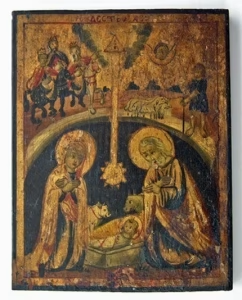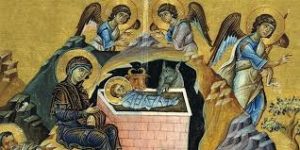Does God Really Care About the Date We Celebrate Any Feast?

Leviticus chapter 23: 15 ‘And you shall count for yourselves from the day after the Sabbath, from the day that you brought the sheaf of the wave offering: seven Sabbaths shall be completed. 16 Count fifty days to the day after the seventh Sabbath; then you shall offer a new grain offering to the Lord… 21 And you shall proclaim on the same day that it is a holy convocation to you. You shall do no customary work on it. It shall be a statute forever in all your dwellings throughout your generations.
Even the Church calendar itself plays an important role in our spiritual life. Feasts, fasts, and festivals mark the rhythm of our spiritual lives, reminding us of the sacred history that shapes our faith. Among Orthodox Christians, the question often arises: Does God really care about the date we celebrate any feast? The answer, grounded in both scripture and tradition, is a resounding yes. The dates we observe are not arbitrary but divinely ordained and meticulously maintained by the Orthodox Church, reflecting a deep theological and spiritual significance.
Biblical Foundation for Specific Dates
The importance of specific dates in religious observance is evident in the Old Testament. In Leviticus 23:15-16, God commands the Israelites to count fifty days from the day after the Sabbath following the Passover and then present an offering of new grain to the Lord. This precise instruction highlights the importance of adhering to specific dates for religious observance. Such commandments were not mere suggestions but divine mandates that structured the worship and communal life of God’s people.
This principle carries over into the New Testament and the life of the Church. The Orthodox Church, in its wisdom and fidelity to apostolic tradition, continues to uphold the significance of liturgical dates. The liturgical calendar, with its feasts and fasts, is not merely a human invention but a sacred timeline that helps the faithful live in harmony with God’s divine plan.
The Essence of Feasts and Their Dates
Feasts in the Orthodox Church serve as more than mere commemorations of historical events. They are windows into the divine mystery, opportunities for the faithful to encounter the living God. Each feast brings to life the salvific acts of Christ, the Theotokos, and the saints, drawing us into deeper communion with the divine. The specific dates of these feasts are divinely inspired markers that guide us through the sacred history of salvation. The precise observance of these dates allows the faithful to participate in the mysteries of faith in a manner that is coherent, unified, and theologically profound and that should be uniform for all Orthodox Christians, whether or not each local Church may celebrate some saints or icons more specifically. The unity of the Church in its liturgical life is significant. The Church is the Body of Christ, and its unity reflects the oneness of the Holy Trinity. Celebrating feasts together on the same dates fostered communal identity and reinforced the shared faith before the bulldozer of the 20th century destroyed all unity. The Orthodox Church, with its various local traditions, maintains this unity by adhering to a common liturgical calendar that transcends geographical and cultural differences.
The liturgical calendar served as a unifying framework that respected and incorporated local customs while maintaining the integrity of the faith. By observing the same dates, Orthodox Christians worldwide expressed their solidarity and continuity with the ancient Church. Pastoral Considerations and No Work Days
From a pastoral standpoint, the specific dates of feasts also have practical implications. The Orthodox Church designates certain feast days as no-work days, emphasizing their significance and ensuring that the faithful can fully participate in the liturgical celebrations. These no-work days provide the opportunity for rest, reflection, and communal worship, underscoring the sanctity of the time set apart for God.
In addressing the importance of these dates, it is also important to recognize the local context. In some regions, adhering to the traditional dates strengthens the identity and continuity of the Orthodox witness. Observing these dates faithfully fosters a sense of belonging and reinforces the communal aspect of worship. So, does God really care about the date we celebrate any feast? Based on biblical precedent, historical tradition, and the practice of the Orthodox Church, the answer is unequivocally yes. The dates we observe are divinely instituted, guiding us through the sacred rhythms of worship and ensuring our unity as the Body of Christ. As we honor these sacred times, let us focus on their spiritual essence, striving to live out the truths they reveal in our daily lives.
In the end, the ultimate goal of any feast is to draw us closer to the divine, to fill our lives with the light of Christ, and to strengthen the bonds of love within the Body of Christ. The specific dates of these celebrations are integral to this process, reflecting God’s care for the order and sanctity of our worship.






